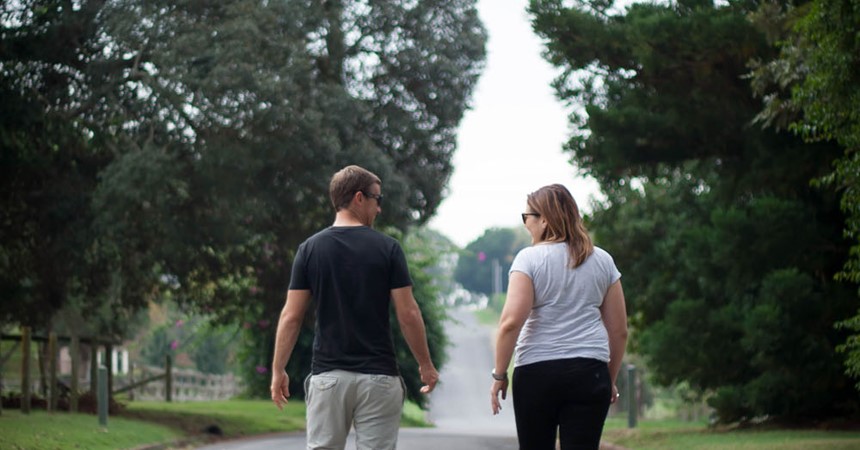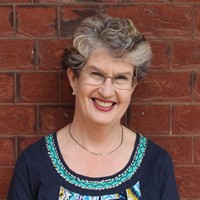These men and women of varied ages and backgrounds (and three more who couldn’t be there the night I joined them) first met six years ago as they began formation to be spiritual directors. Each had experienced being a spiritual ‘directee’ and been enriched by the experience, and they wanted to be in a position to share it with others.
It’s important to note that just as not every student is meant to be a teacher, so not every directee is called to be a spiritual director. A thorough discernment process preceded each individual’s participation in this ministry.
So just what is spiritual direction, and who might benefit from it?
“It’s a companioning role that asks us to listen to another’s story and invite them to contemplate their experience for its deep meaning or direction,” says Gail Doolan, social worker (retired) and meditator.
“It’s based very much on the contemplative model,” says Max Grieve, social worker.
“It’s learning to listen for God,” says Christine Cavenagh, speech pathologist (retired) and artist.
“It’s about listening to experience, and waiting for the ‘gold’ to reveal itself,” says Jenny Moylan, mother of two young children and a pre-school director.
“It’s something like the discipline of prayer,” says Matt Lamont, social worker.
Juleen Partridge, Bev Rigby and Elizabeth Reynolds were unable to be there and no doubt each would add her own insight.
The term ‘spiritual direction’ obviously suggests a God-dimension – doesn’t it? Not necessarily. The directors can share experiences (anonymously; confidentiality is paramount) of directees who would not call themselves theists, yet seek spiritual companionship.
Perhaps John captures it best when he says that when an individual undertakes spiritual direction, “It’s a practical outcome of feeling the yearning for something more.”
I believe this ‘something more’ is the key. Spiritual direction is not counselling, psychotherapy or confession!
“It’s not bringing a problem to be solved but an experience to be contemplated,” says Matt, and it’s clear from the rich conversation that spiritual direction is firmly grounded in experience.
The formation the directors completed over four years was an initiative of four qualified, well established and experienced spiritual directors – Rev Malcolm Drake, Rev Nerida Drake, Sr Lynette Pearce rsj and Sr Colleen Carney rsj. They are grateful to their tutors. Being a director requires also having direction oneself, as well as regular ongoing individual supervision, so the commitment these women and men have made is not a small one.
Meanwhile, Director of the Office of Life and Faith, John Donnelly, reports that “Young people engaged in the Pastoral Placement Program are taking time to discern their baptismal call to service of the people of God through the Catholic Church. As part of this year of training, formation and work experience they are offered the opportunity of individual spiritual direction as well as group theological reflection to assist in their discernment of God’s particular call to them as disciples in this time and place.”
John and Christine Cavenagh have accepted an invitation to direct the eight participants in this year’s program.
The scriptures are a rich resource for spiritual direction although not in a prescriptive sense. As I listen to these wise people, I feel that the experience each one brings – as directee and director – is a gospel in itself, and the dividends of engaging deeply with that story are many.
Jenny shares her delight in gaining a deeper understanding of her Aboriginal husband’s ability, even need, to take time simply to sit and contemplate. “Now I get it!” she says.
Spiritual direction has long been part of the Christian landscape, although perhaps under different names, and traditionally, spiritual directors have been religious sisters or priests. As in so many areas, the people of God are stepping up to minister in ways that are new and life-enhancing for all concerned.
Spiritual director, Judi Taylor, writes in the journal,Terra Spiritus, “Being with people in spiritual direction is a privilege, we are on holy ground, a place of tenderness and delicacy as we explore this sacred space, perhaps for the first time.”
The accompanying photograph captures something of the notion of companionship in walking the journey that is life. Spiritual directors have been called spiritual companions and spiritual mentors. Max describes spiritual direction where one reflects on one’s experience as “a rich fertile cauldron” and there’s something captivating about this image. Spiritual direction is not magic but it offers the opportunity to sit with one’s experience, play with it, stir it up perhaps, and see what emerges. Why not give it a go?
To learn more about the opportunities available and commensurate costs, please P Tracey Edstein 4979 1288 or E tracey.edstein@mn.catholic.org.au























































































